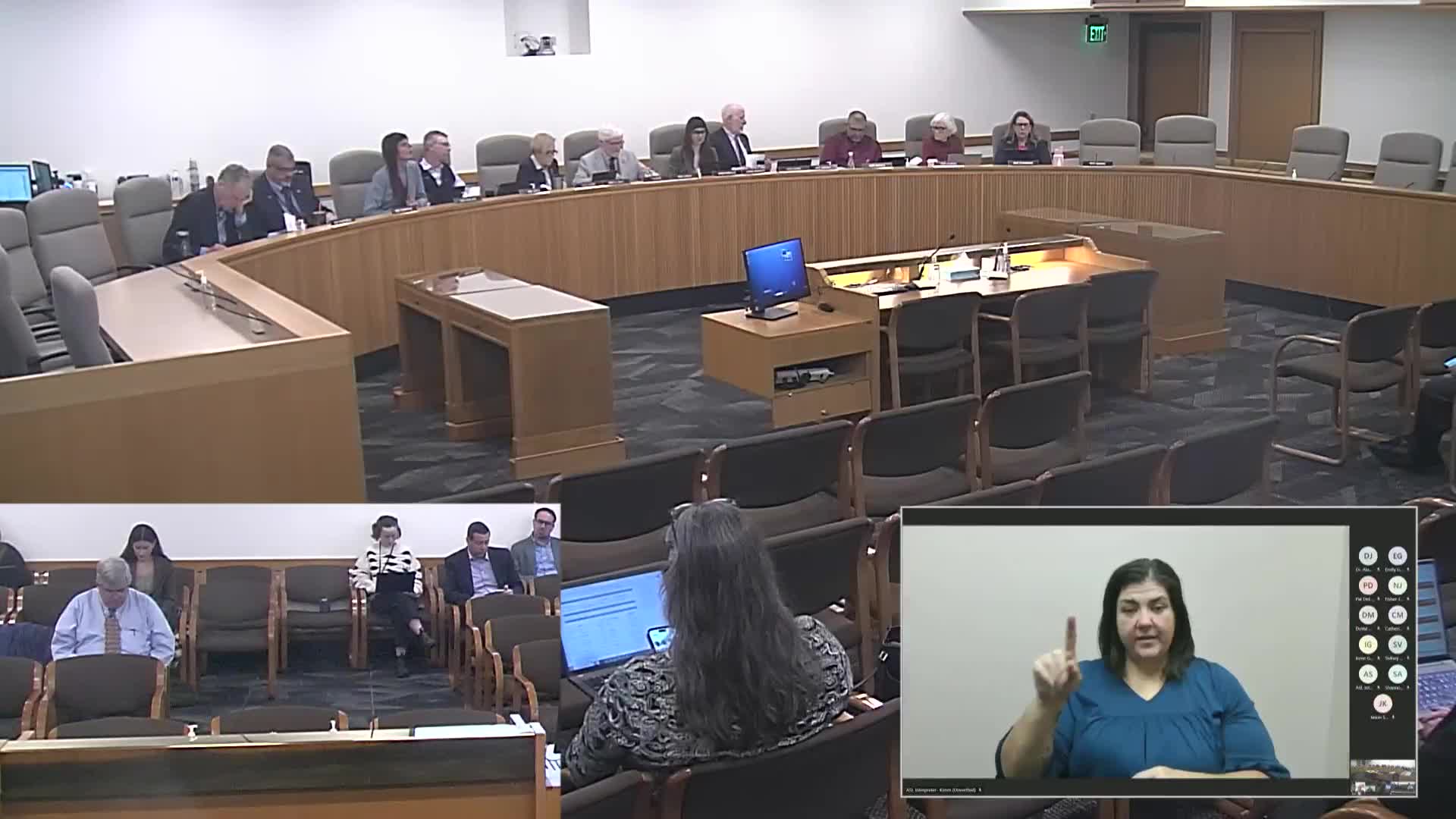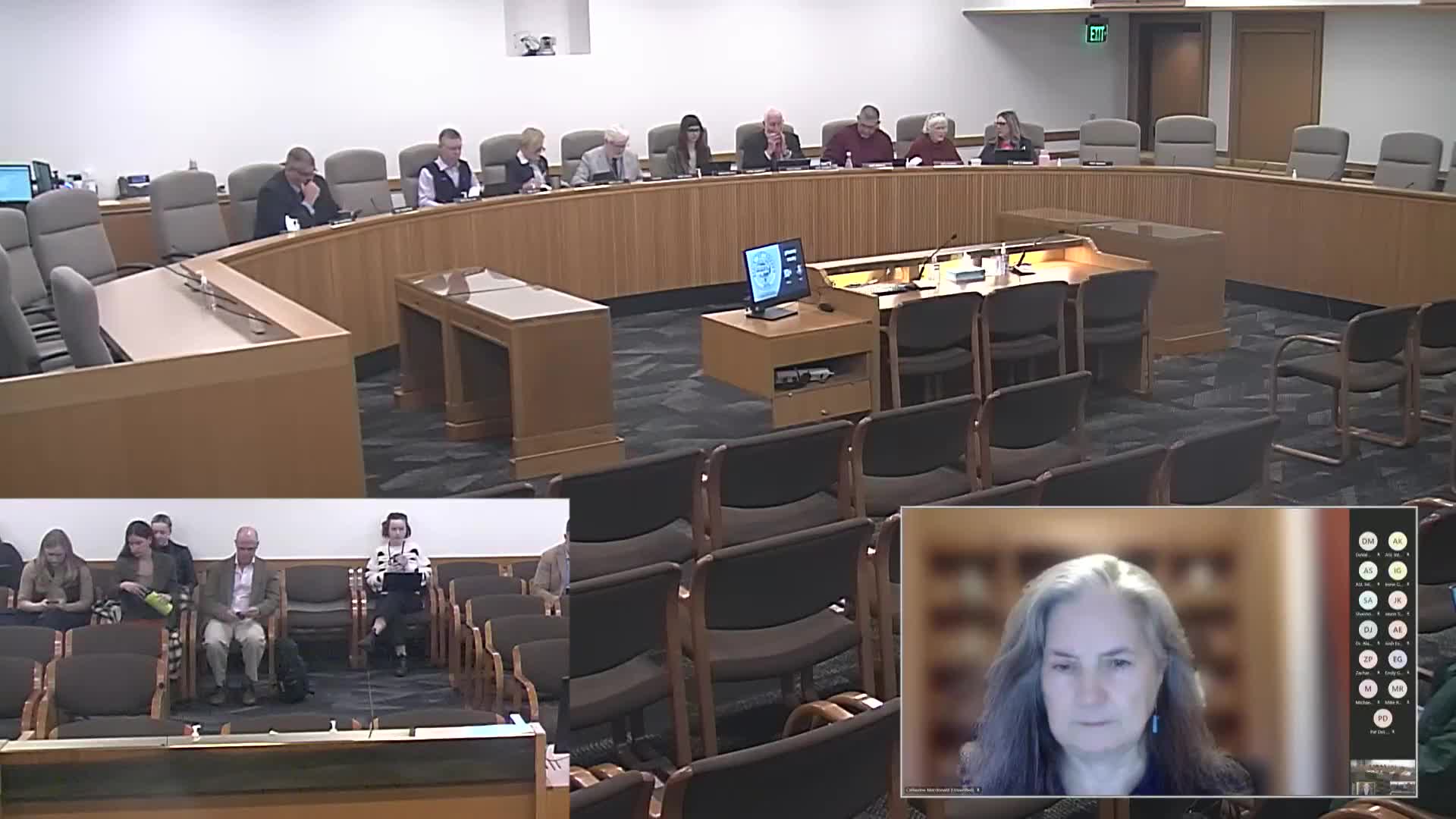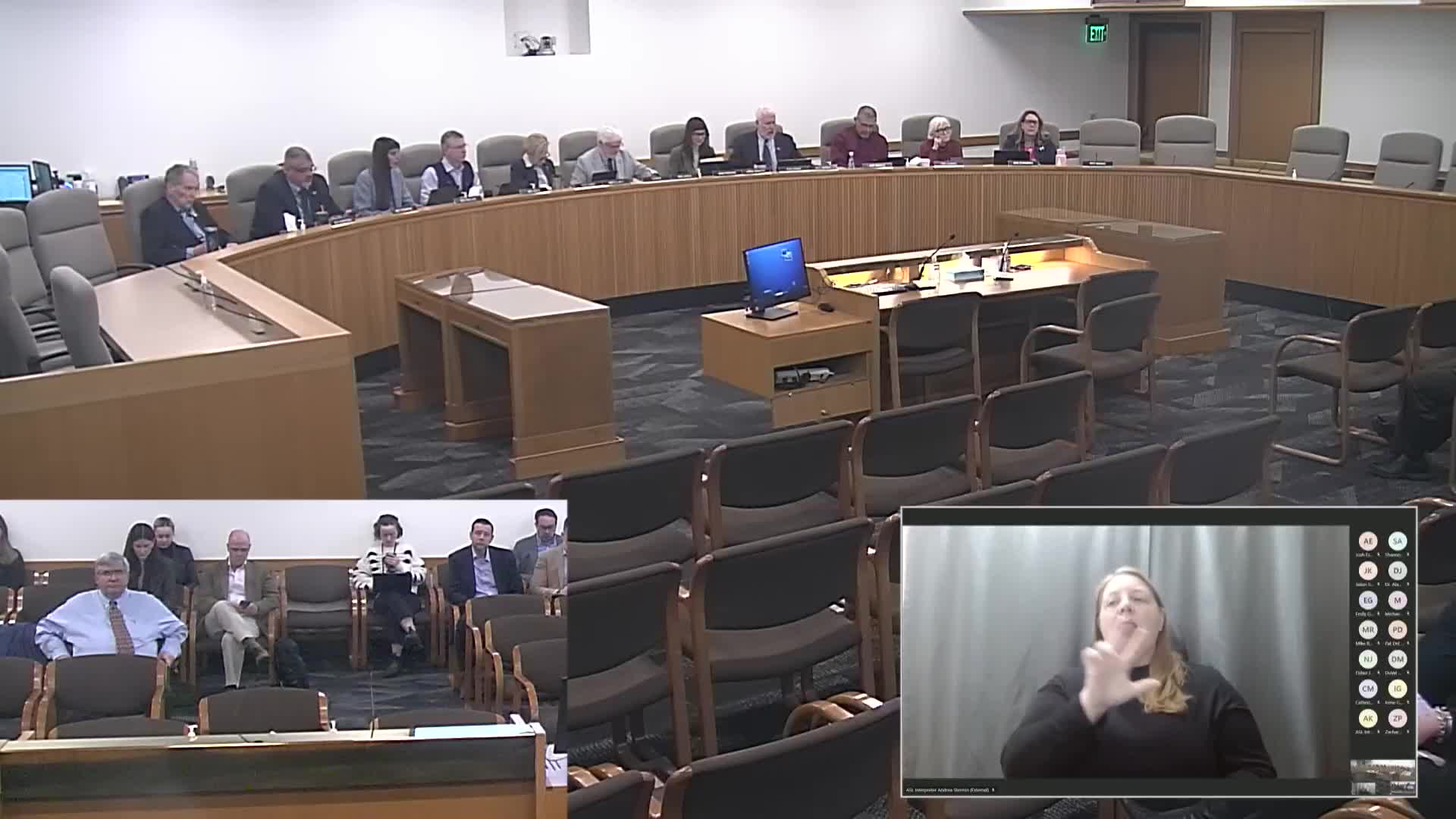Article not found
This article is no longer available. But don't worry—we've gathered other articles that discuss the same topic.

Bill to speed transmission permits draws support from developers and concerns from farmers and landowners

House committee hears bill to update Oregon greenhouse-gas targets, set net‑zero by 2050

